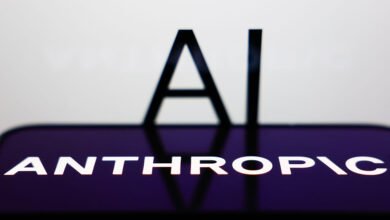Anthropic to Pay Authors $1.5B in AI Copyright Deal

▼ Summary
– Anthropic will pay at least $1.5 billion to settle a copyright lawsuit brought by authors, amounting to an estimated $3,000 per work.
– This is the first U.S. class action settlement on AI and copyright, potentially setting a precedent for how generative AI and intellectual property are legally addressed.
– The settlement applies to approximately 500,000 works, with the number possibly increasing and Anthropic paying an additional $3,000 for each extra work identified.
– Anthropic does not admit wrongdoing, stating the settlement resolves legacy claims while affirming its commitment to developing safe AI systems.
– A judge previously ruled Anthropic’s AI training was protected by fair use but allowed the class action to proceed over the use of pirated materials from shadow libraries.
In a landmark decision with far-reaching implications for the tech and creative sectors, Anthropic has agreed to a $1.5 billion settlement to resolve a class action lawsuit brought by authors alleging copyright infringement. The agreement, which amounts to an estimated $3,000 per work, was described by plaintiffs as a “critical victory” that avoids the significant risks of a full trial. This case represents the first major U.S. class action settlement addressing copyright issues in the age of artificial intelligence, setting a powerful precedent for how generative AI companies may be required to compensate creators.
The settlement applies to roughly 500,000 works, though that number could increase once a final list of materials is submitted to the court by October. For every additional copyrighted work identified, Anthropic will pay another $3,000. Justin Nelson, co-lead counsel for the plaintiffs, emphasized the historic nature of the resolution, stating it “far surpasses any other known copyright recovery” and sends a clear message that unauthorized use of copyrighted material is unacceptable.
Notably, Anthropic has not admitted any wrongdoing or liability. Aparna Sridhar, the company’s deputy general counsel, framed the settlement as a way to resolve legacy claims while reaffirming Anthropic’s commitment to developing AI systems that benefit society. The lawsuit, originally filed in 2024 in California, accused the company of training its large language models on authors’ works without permission, tapping into a broader wave of litigation targeting AI firms over their training data sources.
Earlier this year, Judge William Alsup ruled that Anthropic’s AI training was protected under the “fair use” doctrine, offering the company a partial legal shield. However, he also highlighted a critical distinction: while training itself may be permissible, sourcing materials from pirated “shadow libraries” like LibGen was not. The judge noted that Anthropic had downloaded millions of pirated books and retained them even after deciding not to use them for training, creating grounds for the authors to pursue a class action. Anthropic has maintained that it did not ultimately train its models on these pirated works and instead purchased legitimate copies.
This settlement underscores the growing tension between rapid AI advancement and intellectual property rights, establishing a new benchmark for accountability in the industry.
(Source: Wired)



